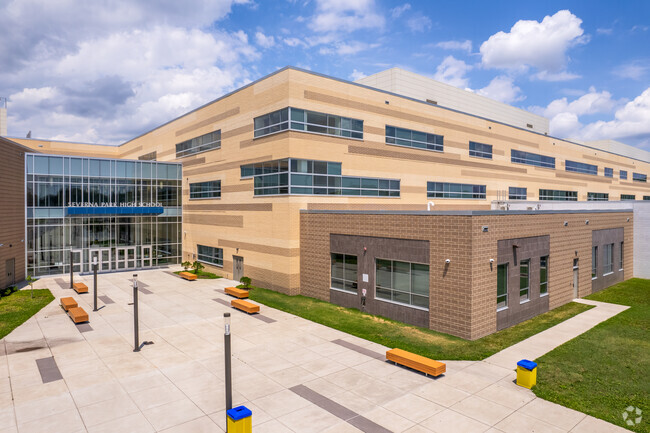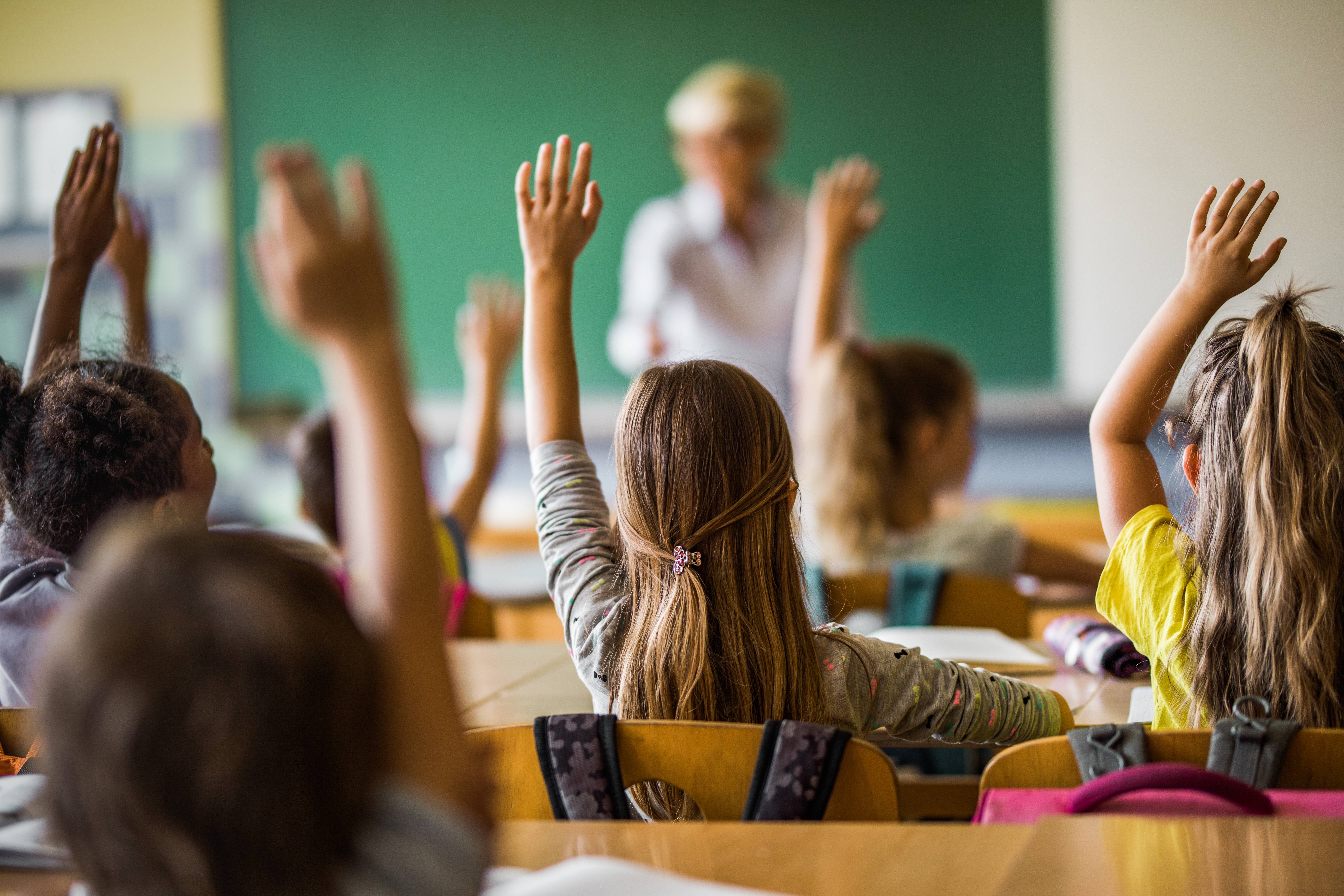Understanding the Significance of Schools in Kid Growth and Neighborhood Growth
Schools work as critical organizations for child advancement and community growth, offering environments where academic achievements are matched by the growing of social skills and direct exposure to diverse point of views. These academic setups not only advertise important thinking and reliable interaction but likewise foster empathy via joint projects. Furthermore, institutions' involvement with regional areas via service-learning efforts reinforces the bond in between families and academic organizations. This cooperative connection underscores the relevance of schools in supporting active citizenship and long-lasting learning routines. Nevertheless, what are the specific systems whereby these institutions accomplish such extensive impacts?
Academic Accomplishment
Academic accomplishment acts as a keystone of youngster growth, giving the foundation whereupon future discovering and success are constructed. Colleges play an essential role in cultivating this academic growth, supplying structured atmospheres where youngsters can obtain crucial understanding and cognitive skills. Standardized educational program ensure that pupils gain efficiency in core topics such as maths, science, and language arts, which are crucial for both college and expert opportunities.
In enhancement to giving fundamental scholastic skills, colleges likewise grow vital thinking, analytical capacities, and intellectual curiosity. These cognitive expertises are important for navigating intricate real-world scenarios and adapting to the ever-evolving needs of the modern-day office. Teachers, as facilitators of understanding, employ diverse instructional methods to satisfy varied knowing designs, thereby taking full advantage of private pupil potential.
Additionally, scholastic success is closely connected to self-esteem and motivation. Children that experience academic success are more probable to establish a positive self-concept and a lifelong interest for learning. Schools likewise offer numerous resources, such as libraries and technology, which even more enhance the academic experience and prepare pupils for a highly innovative culture.
Social Ability Development
Beyond scholastic success, the duty of institutions in social ability development is crucial. Schools work as a key place for youngsters to find out and exercise vital social abilities such as communication, cooperation, and problem resolution. In the structured environment of a classroom, students interact with peers, educators, and various other institution personnel, providing numerous opportunities to develop these crucial abilities.
Reliable social ability advancement in schools is facilitated via team activities, collective jobs, and extracurricular programs. These interactions help pupils recognize social norms, develop compassion, and cultivate a feeling of area. Team projects educate trainees how to function with each other towards an usual goal, pay attention to various viewpoints, and browse disputes constructively.

The cultivation of social skills throughout academic year lays a foundation for future personal and expert connections. Save Temecula Schools. As pupils grow, the ability to properly interact and work together becomes progressively essential, emphasizing the institution's vital duty in alternative kid growth
Direct Exposure to Diversity
Exposure to diversity in institutions is basic to promoting a comprehensive way of thinking and expanding pupils' perspectives. Schools work as a microcosm of the more comprehensive society, and running into varied cultures, languages, and socioeconomic backgrounds within this setting gears up pupils with crucial abilities for browsing an increasingly globalized world. This direct exposure urges empathy, reduces bias, and advertises shared regard among peers.
Varied classrooms likewise enhance social and cognitive advancement. Research indicates that students who communicate with peers from diverse histories show much better analytic abilities and imagination. They discover to appreciate various perspectives, which enriches classroom discussions and promotes a much more vibrant understanding experience. This understanding of variety prepares trainees for future workplaces that worth modern competence.

Community Engagement
The benefits of diverse classrooms prolong past the college wall surfaces, cultivating a strong sense of community involvement among pupils. By interacting with peers from different social, socioeconomic, and ethnic backgrounds, pupils obtain a broader perspective and an admiration for variety. This exposure encourages them to come to be active citizens who want to add positively to their neighborhoods.
Schools that emphasize browse around this site community involvement often integrate service-learning jobs, which enable students to deal with real-world problems while using academic skills. These projects not only enhance pupils' understanding of their coursework yet additionally impart a sense of duty and compassion. Collaborations between institutions and neighborhood organizations provide pupils with opportunities to get involved in area events, further strengthening their function as aggressive community participants - Save Temecula Schools.
In addition, adult Going Here and community involvement in schools strengthens the bond between academic institutions and the communities they serve. Through these initiatives, colleges play a pivotal role in nurturing area engagement and fostering societal development.
Lifelong Discovering Practices
Creating long-lasting knowing routines is crucial for a youngster's continual development and flexibility in an ever-changing world. Schools play a critical role in instilling these routines by producing an environment that fosters curiosity, vital thinking, and a love for understanding. Via extracurricular tasks and varied educational programs, instructors urge pupils to discover various topics, examine info critically, and apply their finding out to real-world situations.

In addition, schools supply a structured environment where kids can create self-discipline and time administration skills, both of which are essential for continual learning. By emphasizing the value of establishing objectives, assessing progression, and adjusting techniques, universities prepare pupils to navigate the complexities of adult life, guaranteeing they continue to be long-lasting learners and contributors to society.
Conclusion
In final thought, institutions are important in fostering kid growth and neighborhood growth by providing settings conducive to academic success, social skill advancement, and exposure to variety. Inevitably, institutions cultivate lifelong knowing practices, outfitting people with the required understanding and skills to add favorably to society.
In the organized setting of a class, try this site trainees connect with peers, instructors, and various other school personnel, supplying countless opportunities to create these crucial capacities.
In significance, direct exposure to diversity within schools not only improves individual trainees yet also strengthens the social fabric of the neighborhood as a whole.
The advantages of varied classrooms prolong beyond the institution wall surfaces, cultivating a strong sense of neighborhood interaction among students.Institutions that stress area engagement typically include service-learning tasks, which permit students to deal with real-world issues while using scholastic abilities. Collaborations in between colleges and neighborhood companies provide trainees with possibilities to take part in neighborhood occasions, additionally strengthening their duty as aggressive community participants.